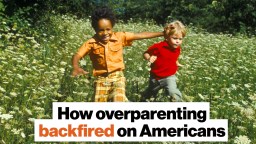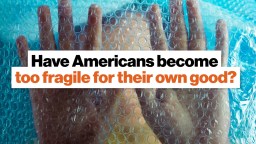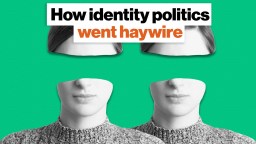3 great untruths to stop telling kids — and ourselves

- According to prominent social psychologist Jonathan Haidt, there are three great untruths currently being taught to our kids: (1) “What doesn’t kill you makes you weaker”; (2) “Always trust your feelings”; and (3) “Life is a battle between good people and evil people.”
- Reinforcing these misinformed dogmas through parenting and education is leaving future generations ill-prepared to thrive in a complex, interconnected world.
- According to Haidt, the reality is more nuanced: “Children are anti-fragile, we are all prone to motivated reasoning and confirmation bias, and we’re all prone to tribalism and black-and-white thinking.” We should be raising and educating kids based on those principles.
In 2018, prominent social psychologist Jonathan Haidt, the Thomas Cooley Professor of Ethical Leadership at the New York University Stern School of Business, and journalist Greg Lukianoff, the president of the Foundation for Individual Rights and Expression, released their co-written book The Coddling of the American Mind. In it, they convincingly argued that the current generation of parents and educators are leading kids astray. By perpetuating three great untruths — (1) “What doesn’t kill you makes you weaker”; (2) “Always trust your feelings”; and (3) “Life is a battle between good people and evil people” — the old are letting down the young, leaving kids ill-prepared to face a complex world.
Haidt sat down with Big Think to further explain the untruths and their pernicious effects.
Untruth #1: What doesn’t kill you makes you weaker
The first untruth, “What doesn’t kill you makes you weaker,” seems to be a complete reversal of a more empowering adage: “What doesn’t kill you makes you stronger.” Parents and educators today are increasingly worried about inflicting any sort of “trauma” on kids, worried that it might leave lasting mental scars. Trigger warnings and helicopter parenting are byproducts of this desire to shield kids from any potential source of harm, either physical or emotional.
But this rising tendency goes against decades of research showing that the young tend to be remarkably resilient to adverse experiences. Rather than being fragile, they are “anti-fragile,” Haidt said. Just like bones and muscles need to be used and pushed to stay strong, and the immune system must be exposed to pathogens to remain in tip-top shape, kids’ psyches need to be challenged to keep them balanced and healthy.
“By over-protecting our children we are setting them up to be weak, to be more easily damaged, to be more easily discouraged,” Haidt told Big Think. “When we protect children from unpleasantness, from conflicts, from insults, from teasing, from exclusion, we’re preventing their social psychology, we’re preventing their social abilities, we’re preventing their strength from developing.”
Untruth #2: Always trust your feelings
A second untruth that Haidt and Lukianoff expounded upon is “always trust your feelings.”
“What we’ve begun seeing on campus is that students are encouraged to follow their feelings; if they feel offended by something then they have been attacked. They’re supposed to not question those feelings,” Haidt said.
Fancy phrases like “personal truth” and “lived experience” are now utilized all too often to place feelings on the same echelon as facts. But they aren’t remotely on the same level. Feelings are subject to the hundreds of cognitive biases that plague human thinking. Facts, on the other hand, are facts.
“We need to be teaching young people at all stages to question their first interpretations, look for evidence, and improve the way they interpret the world,” Haidt stated.
Untruth #3: Life is a battle between good people and evil people
The final great untruth, “the worst and most dangerous and darkest of all,” according to Haidt, is that life is a battle between good people and evil people. This untruth feeds on humanity’s ingrained susceptibility to tribalism.
“We evolved in small-scale societies that were locked in struggle with other small-scale societies,” Haidt explained. “Human nature is really, really finely tailored for inter-group conflict, for tribal warfare.”
So when educators and students distill people down to their various identities, and elevate the notion that their actions and views are determined almost entirely by those identities, they are reinforcing the notion that humans are black-or-white automatons rather than complex individuals in varying shades of gray.
“On some college campuses and in some high schools we see forms of education, forms of training that teach students to make more and more distinctions, to see more and more binary dimensions between people,” Haidt elaborated. “The more we encourage people to see the people around them as good versus evil, the harder it’s going to be to create an inclusive, diverse environment.”
Here’s the bottom line, Haidt concluded:
“Children are anti-fragile, we are all prone to motivated reasoning and confirmation bias, and we’re all prone to tribalism and black-and-white thinking. If we want to raise a generation of kids who can deal with diversity of all kinds, who can go out into a world that’s physically actually quite safe and yet full of offensive content, we need to get our educational practices in line with these three psychological principles.”





